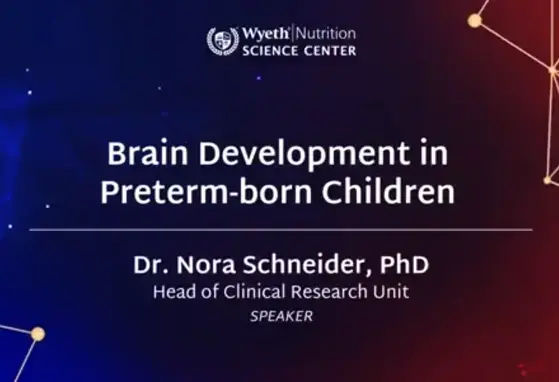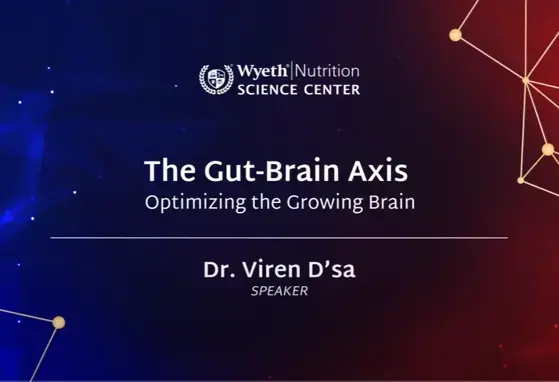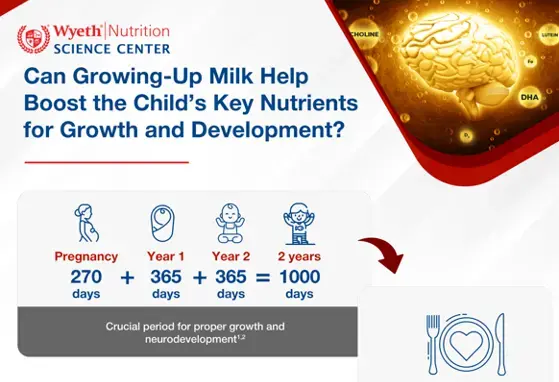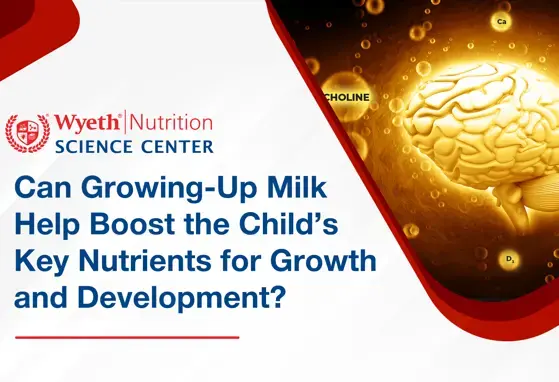Sphingomyelin in brain and cognitive development: Preliminary data

This manuscript provides preliminary findings from the first study ever conducted in term neurotypically developing children which connects dietary sphingomyelin (SM) intake from infant nutrition products to cognitive development and brain myelination.
Background
- While existing studies may suggest the role of sphingomyelin (SM) as a nutritional contributor to brain and cognitive development, clinical evidence on human infants remains scarce
- With an observational cohort human study model paired with in vitro models, the authors offered the first findings on the impact of early life dietary SM in later cognitive development of healthy term-born children
Subjects
- Healthy, term infants < 2 years of age and toddlers > 2 years of age (n = 88)
- Received the same infant nutrition product (named product A, B or C in study) for at least 80% of feeds during the first 3 months of life
|
Dietary SM intake |
|
|
Method |
|
|
Result |
|
|
Brain SM and Cognitive Development |
|
|
Method |
|
|
Result |
|
Conclusion
- Dietary SM induced impact on cognitive development in health term children
- Dietary SM may potentially modulate oligodendrocyte cells and increase axon myelination
Further studies should include examinations of SM availability and brain update to support evidence on SM intake and cognitive benefits
WYE-EM-301-AUG-19
Reference
Schneider N, et al. Sphingomyelin in brain and cognitive development: preliminary data. eNeuro. 2019;10.1523/ENEURO.0421-18.2019.
Link to the article
Other online materials that you might be interested in:
“The Learning Lead” Newsletter Volume 6 Issue 1 – Sphingomyelin in brain and cognitive development
If you liked this post you may also like



Infographic - Can Growing-Up Milk Help Boost the Child's Key Nutrients for Growth and development?

The Learning Lead - Volume 2, 2024: "Can Growing-Up Milk Help Boost The Child’s Key Nutrients for Growth and Development?"